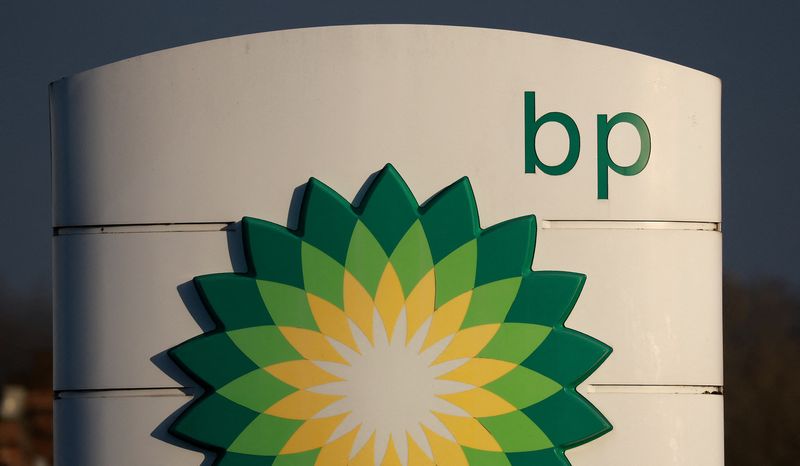Adaptimmune stock plunges after announcing Nasdaq delisting plans
Investing.com -- Jefferies has downgraded BP (LON:BP) to “hold” from “buy” and cut its price target by 29% to £3.9 per share, citing increased execution risk amid lower oil price forecasts for 2025 and 2026, in a note dated Monday.
The move reflects growing concerns around the company’s ability to balance its financial commitments with strategic growth plans, especially under a weakened macroeconomic outlook.
Analysts at Jefferies now estimate a total shareholder return of about 13% for BP, warning that the energy giant could soon face a trade-off between achieving its net debt reduction target and maintaining its share buyback program. BP may also have to reassess its upstream growth ambitions.
Jefferies flagged BP’s position as the most leveraged among its peers, with net debt to equity standing at 90%, nearly three times the sector average of 33%.
Net debt to EBITDA is also higher at 1.5x compared to the sector’s 0.8x. BP has committed to reducing net debt by $5–9 billion and hybrid debt by around $4 billion by 2027, a plan Jefferies described as credible when first outlined at BP’s February capital markets update. However, that plan is now seen as increasingly at risk.
With oil prices at $65 per barrel, Jefferies estimates BP will generate roughly $8 billion less in cash from operations compared to its 2025–2027 plan.
Under this scenario, deleveraging efforts would be almost entirely dependent on the successful execution of a $20 billion divestment plan, something analysts say is exposed to heightened risk due to global economic uncertainty.
If prices drop below $65 per barrel, BP could become the first among international oil companies to suspend share buybacks, Jefferies said.
The shift in BP’s capital spending focus toward upstream operations was deemed a necessary correction.
However, Jefferies warned that the long-term impact of previous underinvestment would take time to reverse.
BP currently holds the lowest reserve life in the sector at 7.1 years. Over the past three years, and excluding the impact of its stake in Rosneft, BP also posted the sector’s lowest organic reserve replacement ratio at 39%.
Activist investor Elliott’s involvement has been viewed as a net positive by Jefferies, having sharpened BP’s attention on leverage reduction and divestments, while also prompting changes at the board level.
Still, BP’s high leverage and declining oil prices are limiting the options available to its management.
Analysts believe prioritizing the balance sheet would benefit the stock in the short term, but would come at the expense of further weakening an already fragile upstream portfolio.
Reports that BP could be a takeover target as part of broader sector consolidation have been downplayed by Jefferies.
Analysts cited the limited pool of potential buyers, possible government intervention, a lack of strategic alignment with other large-cap oil companies, and the absence of a material valuation discount as barriers to any potential deal.
Despite a year-to-date underperformance of about 5% versus European peers on a total shareholder return basis, BP does not appear undervalued relative to the sector, according to Jefferies.
Free cash flow yield is estimated at 8.6% for FY25 and FY26, ahead of the sector average of 6% but only marginally higher than Shell’s 8.2%.
Jefferies said its revised model incorporates a $10 per barrel reduction in oil and gas price assumptions for FY25 and FY26, BP’s first-quarter results, and annual disclosures.
Net income estimates for 2024 through 2026 were cut by an average of 33%, with the largest impact seen in oil production and operations (OPO) and gas and low carbon energy (GLC) segments. The brokerage now sits 17% below Visible Alpha consensus.
